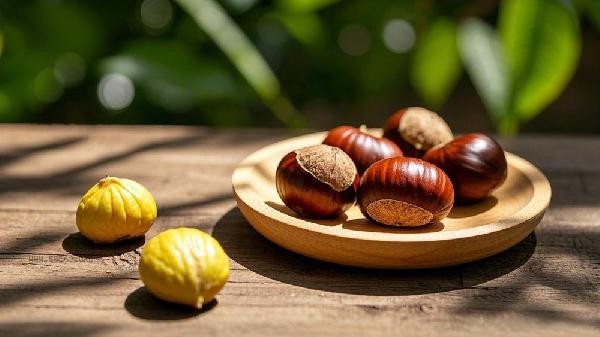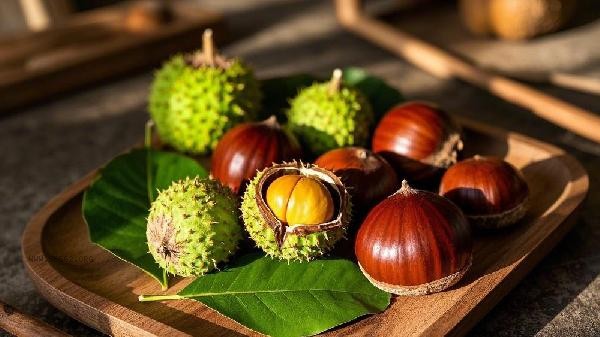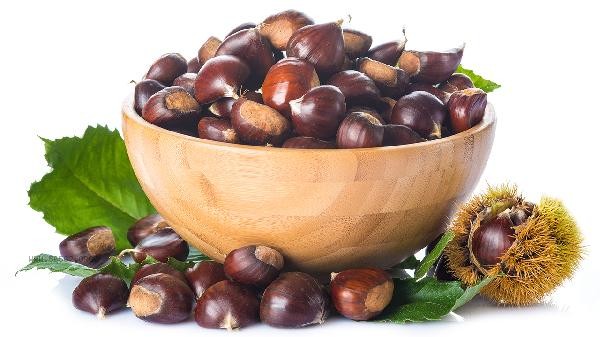The water used to boil chestnuts has the effects of moistening the intestines, promoting bowel movements, relieving fatigue, and assisting in sugar control, making it suitable for daily moderate consumption. Boiling chestnut water contains a small amount of water-soluble dietary fiber, B vitamins, and minerals, but it should be noted that its efficacy is limited and cannot replace drug treatment.

1. Moisturize the intestines and promote bowel movements
The water used to cook chestnuts contains a small amount of water-soluble dietary fiber, which can promote intestinal peristalsis and help improve mild constipation. The tannins in chestnut peel partially dissolve in water during the cooking process, which may have a slight astringent effect on the intestinal mucosa, but excessive consumption may cause gastrointestinal discomfort. Suggest pairing sufficient water and high fiber foods to enhance the effect.
2. Relieve Fatigue
The B vitamins and potassium elements dissolved in chestnut water help maintain normal neuromuscular function and assist in relieving mild fatigue after exercise. However, the concentration of nutrients is relatively low and the effect is limited. It is more suitable as an auxiliary choice for post exercise hydration and needs to be supplemented with a balanced diet to replenish energy.
3. Auxiliary sugar control
Chestnut water contains slowly digestible carbohydrates with a slower release rate, which may have a buffering effect on blood sugar fluctuations. However, patients with diabetes cannot rely on chestnut water to control sugar. They still need to strictly follow the doctor's advice and control the daily intake of chestnut to avoid affecting blood sugar due to the height, carbon and water characteristics of chestnut.

4. Supplement minerals
During the cooking process, some minerals such as magnesium and zinc will dissolve into the water, which has a weak regulatory effect on electrolyte balance. However, the mineral content of chestnut water is much lower than that of nuts themselves, and cannot be used as the main source of minerals. It needs to be supplemented through a diversified diet, especially for iron deficient individuals who should prioritize animal based foods.
5. Traditional Dietary Therapy Application
Traditional Chinese medicine believes that chestnuts have a flat and sweet taste in water, and are traditionally used to alleviate loss of appetite caused by spleen deficiency. They can be combined with ingredients such as yam and red dates to enhance their nourishing effect. From the perspective of modern nutrition, its actual efficacy is limited, and it is more suitable as a flavor supplement for daily drinks. It is recommended to filter the residue when drinking to avoid bitter taste.

It is recommended to use fresh chestnuts with skin when boiling chestnut water. After cleaning, put them in cold water and simmer for 20 minutes on low heat to retain more nutrients. Daily consumption should not exceed 200 milliliters, and those with weak gastrointestinal function should reduce their consumption. If specific health problems need to be improved, a nutritionist should be consulted to develop personalized plans, in conjunction with scientific diet and exercise management. Chestnut water cannot replace drug treatment, and patients with chronic diseases need to evaluate indicators such as blood sugar and kidney function before drinking it.









Comments (0)
Leave a Comment
No comments yet
Be the first to share your thoughts!